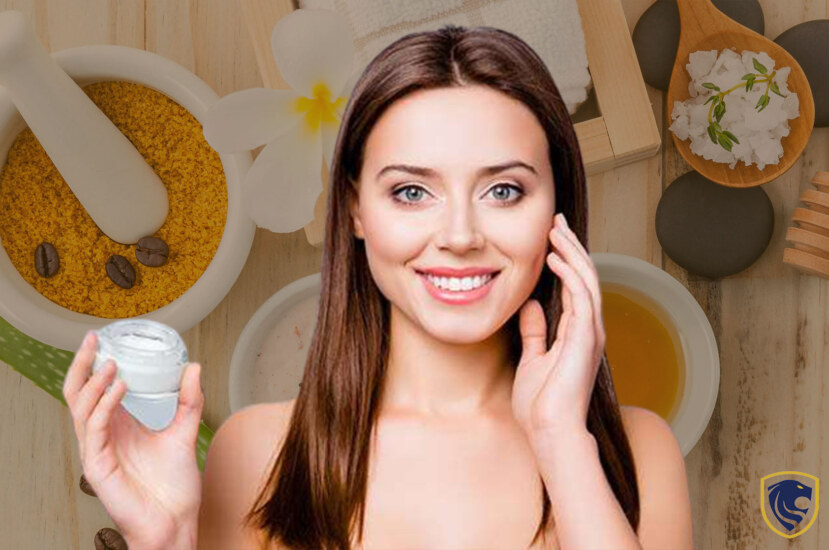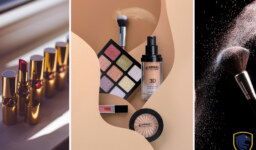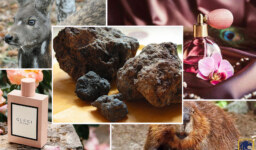Welcome to Part 2 of our investigation into the world of skincare products, in which we continue to uncover the mysteries underlying popular components. This part delves further into the ever-expanding world of skincare, where lotions, potions, and elixirs claim to change and nourish your skin. We continue our trip through the advantages and possible hazards of these compounds, from the moisturizing embrace of Hyaluronic Acid to the skin-renewing enchantment of Retinol. You’ll be better able to create a skincare regimen targeted to your specific requirements if you understand Niacinamide’s calming properties and the protective potency of Mineral Sunscreen. In addition, we’ll investigate the fragrant attraction of Fragrance and Essential Oils, as well as the controversies surrounding parabens.
Finally, we’ll explore the realm of alcohol-containing skincare products, weighing the advantages against the potential negatives. So, whether you’re new to skincare or a seasoned pro, join us as we delve further into the realm of skincare, uncovering the mysteries of common compounds that hold the key to healthy, bright skin.
Niacinamide (Vitamin B3)
Niacinamide (Vitamin B3), a versatile skincare ingredient, is the unsung hero that your skin deserves. Let’s look at its numerous benefits and potential drawbacks in the world of skincare.
Benefits:
1. Barrier Builder: Niacinamide fortifies the skin’s protective barrier, protecting it from external stresses and reducing moisture loss.
2. Reduction of Redness: It reduces redness and inflammation, So, it is ideal for people who have sensitive or rosacea-prone skin.
3. Acne Treatment: Niacinamide controls oil production. Also, it decreases outbreaks and the appearance of acne scars.
4. Pigment Lightener: It improves skin tone by fading dark patches and hyperpigmentation.

Niacinamide (Vitamin B3)
Disadvantages:
1. Little Irritation: Niacinamide is typically well accepted, however, it might produce minor discomfort or itching in rare circumstances.
2. Slow Progress: It may take a little longer to see results.
2. Sluggish Progress: Results may take a little longer to appear, so patience is essential.
3. Not a Wonder Worker: While useful, Niacinamide should not be used as a stand-alone treatment for severe acne or deep wrinkles.
4. Sunscreen Combination: When used with sunscreen, it can improve UV protection; nevertheless, regular sunscreen application is required.
In conclusion, Niacinamide is a multifunctional skincare wonder, providing advantages for a wide range of skin issues. Its mild nature makes it ideal for most skin types, but constant usage is required to get the full benefits. So, for a happier, healthier complexion, try including Niacinamide in your everyday skincare routine.
Mineral Sunscreen (Zinc Oxide, Titanium Dioxide)
Mineral Sunscreen with Zinc Oxide and Titanium Dioxide is a refuge for your skin in the scorching heat. Examine the benefits and drawbacks of this preventive skincare staple.
Benefits:
1. Natural Shield: Zinc Oxide and Titanium Dioxide form a physical barrier on the skin, deflecting and scattering UV radiation.
2. Wide-Range Protection: They protect against both UVA and UVB radiation, providing all-around sun protection.
3. Soft on the Skin: Mineral sunscreens are less likely to irritate the skin, they are ideal for delicate and acne-prone skin.
4. Immediate Effectiveness: They begin functioning immediately after application, with no need to wait before sun exposure.

Mineral Sunscreen (Zinc Oxide, Titanium Dioxide)
Disadvantages:
1. White Casting: Mineral sunscreens can leave a white or chalky residue on the skin, which can be unsightly, especially on darker skin tones.
2. Weight: Moreover, mineral sunscreens are seen by some to be thicker and heavier on the skin than chemical sunscreens.
3. Water Resistance: Because they are not as water-resistant as certain chemical sunscreens, they must be reapplied after swimming or sweating.
4. Blending Test: Achieving an even application might be more difficult, requiring much rubbing and mixing.
Finally, Mineral Sunscreen provides a solid shield against the sun’s damaging rays due to its natural and broad-spectrum protection. While it has a white cast and requires more work to blend, its suitability for delicate skin makes it an excellent choice.
Fragrance and Essential Oils
Fragrance and Essential Oils are fragrant components that give many skincare products a pleasing fragrance. However, using them in your skincare routine might provide both fragrance advantages and possible problems.
Benefits:
1. Sensory Pleasure:* fragrance and essential oils create a lovely sensory experience, adding to the pleasure of using skincare products.
2. Mood Elevation: Certain smells, such as lavender or citrus, can boost your mood by stimulating relaxation or invigoration throughout your skincare regimen.
3. Natural Attraction: Plant-derived essential oils may provide natural and holistic advantages such as calming qualities or antioxidants.
4. Fragrance Can Help Hide Unpleasant Odors: Fragrance can help hide the less attractive natural aromas of several skincare components.

Fragrance and Essential Oils
Disadvantages:
1. Sensitivity Issues: Fragrance and essential oils are major causes of skin irritation, especially in people who have sensitive or allergy-prone skin.
2. Allergy Reactions: When exposed to aromatic substances, some people may have allergic responses such as redness, itching, or hives.
3. Phototoxicity Risk: When exposed to sunlight, certain essential oils might raise the risk of skin irritation and sunburn.
4. Unclear Formulations: The source or composition of fragrances or essential oils may not always be specified on skincare product labels, making it difficult to detect possible allergies.
In conclusion, aroma and essential oils may bring sensory pleasure as well as holistic advantages in skincare. However, because of their ability to produce skin irritation and sensitivity, they are a double-edged sword. It’s critical to be aware of your skin’s sensitivity and, if necessary, opt for fragrance-free products. The secret to appreciating the fragrant side of your beauty regimen is to balance the fragrance attraction with skincare safety.
Parabens
Parabens, which were formerly widely used in skincare, have come under fire in recent years due to safety concerns. These frequently used preservatives have advantages but also problems.
Benefits:
1. Preservation Ability: Parabens inhibit the growth of bacteria, fungus, and mold in skincare products, hence increasing their shelf life.
2. Affordability: They are inexpensive and readily accessible, which makes things more cheap.
3. Stability: Parabens maintain their efficacy in product compositions over time.

Parabens
Disadvantages:
1. Concerns About Hormone Disruption: Because they can resemble estrogen when taken into the body, parabens have been criticized for their potential to alter hormones.
2. Skin Sensitivity: When exposed to paraben-containing products, some people may develop skin irritation or allergy.
3. Environmental Implications: Parabens can enter the environment via wastewater and can harm aquatic life.
4. Restricted Research: While research has highlighted concerns about parabens, additional study is needed to determine their safety or hazards.
Many skincare firms have responded to customer concerns in recent years by developing paraben-free options. However, it is critical to recognize that parabens are permitted for usage at acceptable levels by regulatory authorities such as the FDA and the European Commission. If you choose to avoid them, there are paraben-free skincare solutions available. Finally, whether to use paraben-containing products or seek alternatives is a matter of personal preference and level of comfort with potential hazards.
Alcohol (Ethanol, Isopropyl Alcohol)
Alcohol, which includes Ethanol and Isopropyl Alcohol, is a popular element in skincare products that typically serves numerous functions. However, in the field of skincare, its usage has both advantages and possible problems.
Benefits:
1. Efficient Solvent: Alcohol acts as a solvent in skincare products, assisting in the dissolution of other substances and ensuring product stability.
2. Fast Absorption: It evaporates quickly after application, leaving items light and non-greasy on the skin.
3. Astringent Properties: Alcohol has astringent properties, which can aid in tightening and temporarily firming the skin.
4. Acne Management: It can help reduce acne at lower concentrations by eliminating excess oil from the skin’s surface.

Alcohol (Ethanol, Isopropyl Alcohol)
Disadvantages:
1. The Drying Effect Alcohol is well-known for its ability to strip the skin of natural oils, resulting in dryness and irritation, especially at higher concentrations.
2. Sensitivity Issues: When using alcohol-containing products, those with sensitive or dry skin may suffer redness, stinging, or burning.
3. Increased Sun Sensitivity: Alcohol can increase skin sensitivity to the sun’s damaging rays, prompting the usage of sunscreen.
4. Barrier Disruption: Excessive or prolonged alcohol usage might undermine the skin’s natural protective barrier.
The key to utilizing alcohol-containing skincare products properly is moderation. While it can provide advantages such as oil management and rapid absorption, it is important to exercise caution, especially if you have sensitive or dry skin. If you feel extreme dryness or irritation, look for products with lower alcohol concentrations or look into alcohol-free options to strike the proper balance between the benefits and drawbacks of alcohol in your skincare routine.




